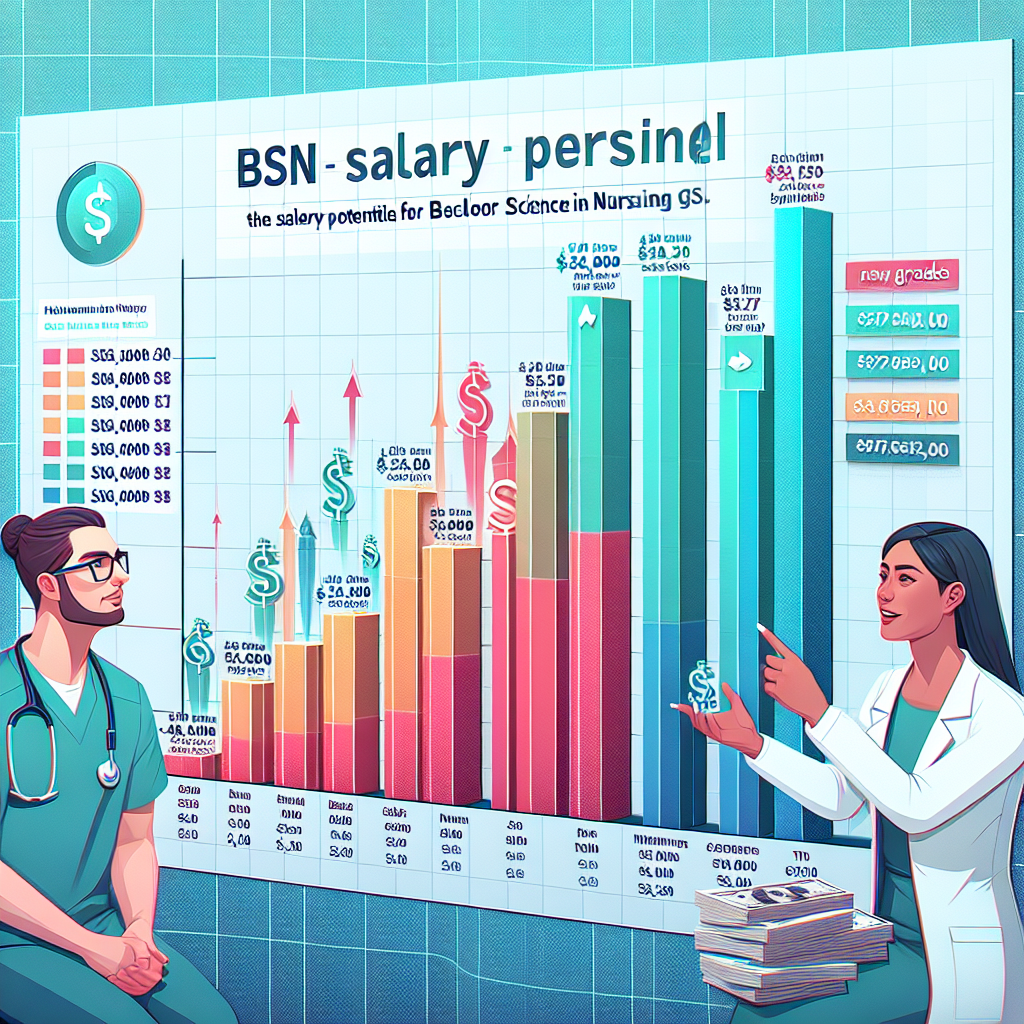Bachelor of Science Degree in Nursing Salary. The healthcare industry is one of the fastest-growing sectors, with nursing standing as its backbone. For those contemplating a career in nursing, understanding the earning potential with a Bachelor of Science in Nursing (BSN) degree is crucial. This article delves into the salary prospects for BSN holders, examines the factors influencing these salaries, and explores the job outlook for nurses in general.
Understanding the BSN Degree
A Bachelor of Science in Nursing (BSN) is more than just an undergraduate degree; it is a comprehensive program designed to produce skilled and knowledgeable nursing professionals.
Comprehensive Curriculum
The BSN program typically spans four years and provides a robust curriculum that covers a wide array of subjects. Students delve into patient care, learning the intricacies of providing compassionate and effective healthcare. Courses in anatomy and physiology equip students with a deep understanding of the human body, a fundamental aspect of nursing practice. Additionally, healthcare ethics courses emphasize the importance of ethical decision-making in various clinical situations.
Comparison with Associate Degree in Nursing (ADN)
While both BSN and ADN programs prepare students for a nursing career, the BSN offers a more extensive education. BSN programs encompass broader training, including leadership and management courses, which are less emphasized in ADN programs. This comprehensive training often translates to better job opportunities and career advancement prospects for BSN graduates.
Opportunities for Specialization
A BSN degree opens doors for specialization in various fields of nursing. Students can choose electives or pursue additional certifications in areas like pediatrics, geriatrics, or oncology, aligning their education with specific career interests. Specializations not only enhance job satisfaction but can also lead to higher salaries and more challenging roles.
The Salary Potential for BSN Graduates

Understanding the financial rewards of a BSN degree is vital for prospective students and current professionals aiming to maximize their earning potential.
Average Salary Overview
The salary for BSN graduates can vary significantly, with several factors playing a role. On average, BSN-educated registered nurses (RNs) earn more than their ADN counterparts, reflecting their advanced training and education. According to the Bureau of Labor Statistics (BLS), the median annual wage for RNs was $75,330 in 2020, but BSN holders often surpass this due to their qualifications.
Factors Influencing Nursing Salaries
Several key factors influence the salaries of BSN-educated nurses:
- Geographic Location: Where you work can dramatically impact your salary. Urban centers typically offer higher wages to match the cost of living, whereas rural areas might offer lower compensation.
- Experience: Experience is a significant determinant of salary. As nurses gain experience, especially in specialized areas, their earning potential increases. Experienced nurses are often sought after for leadership roles, which come with higher pay.
- Specialization: Specializing in high-demand areas such as critical care or oncology can lead to higher salaries. These roles require specific skills and knowledge, which are compensated accordingly.
- Type of Employer: Different healthcare settings offer varying salary ranges. Hospitals generally offer higher salaries compared to outpatient centers or private clinics, which may have budget constraints.
Salary by Location
Location plays a crucial role in determining a nurse’s salary. Here are some examples of average annual salaries for BSN holders in various states:
- California: $113,240 – Known for its high cost of living, California offers competitive salaries to attract skilled nurses.
- Texas: $76,800 – With a lower cost of living than California, salaries in Texas reflect both demand and affordability.
- Florida: $69,510 – Popular for its retiree population, Florida presents a moderate salary range for nurses.
- New York: $89,760 – In line with its high cost of living, New York offers substantial salaries to its healthcare professionals.
These figures demonstrate the significant impact of location on earning potential and highlight the importance of geographic consideration in career planning.
The Job Outlook for Nurses

The nursing profession is poised for growth, with numerous opportunities and challenges on the horizon.
Growing Demand for Healthcare Services
The demand for nurses is projected to increase significantly in the coming years. The Bureau of Labor Statistics anticipates a 7% growth rate for registered nursing jobs from 2019 to 2029. This growth is propelled by an aging population requiring more healthcare services, the prevalence of chronic conditions, and a shift towards preventive care. As a result, nurses will continue to play a critical role in meeting healthcare demands.
Opportunities for Advancement
A BSN degree is not just a stepping stone to a nursing career; it paves the way for advancement into leadership roles. BSN graduates can pursue positions such as nurse managers, clinical nurse leaders, or nurse educators. These roles not only offer increased responsibilities but also come with higher salaries. Moreover, a BSN serves as a foundation for further education, such as obtaining a Master of Science in Nursing (MSN) or Doctor of Nursing Practice (DNP), expanding career horizons even further.
The Impact of Technology on Nursing
Technology is reshaping the healthcare landscape, and nurses must adapt to these changes to remain effective. BSN programs incorporate training on the latest technological advancements, such as electronic health records and telehealth services, ensuring graduates are well-prepared for the modern healthcare environment Embracing technology enhances patient care and streamlines healthcare processes, making it an integral part of nursing practice today.
Bachelor of Science Degree in Nursing Salary
A Bachelor of Science in Nursing degree offers a promising career path characterized by competitive salaries and a robust job outlook Bachelor of Science Degree in Nursing Salary. While various factors such as location and experience influence salary, BSN holders generally enjoy higher earning potential and more opportunities for advancement than those with an ADN. As the demand for skilled nurses continues to rise, pursuing a BSN is a strategic step towards a rewarding and stable career in the healthcare industry. With the right education and experience, BSN graduates are well-positioned to thrive in a dynamic and evolving field.




